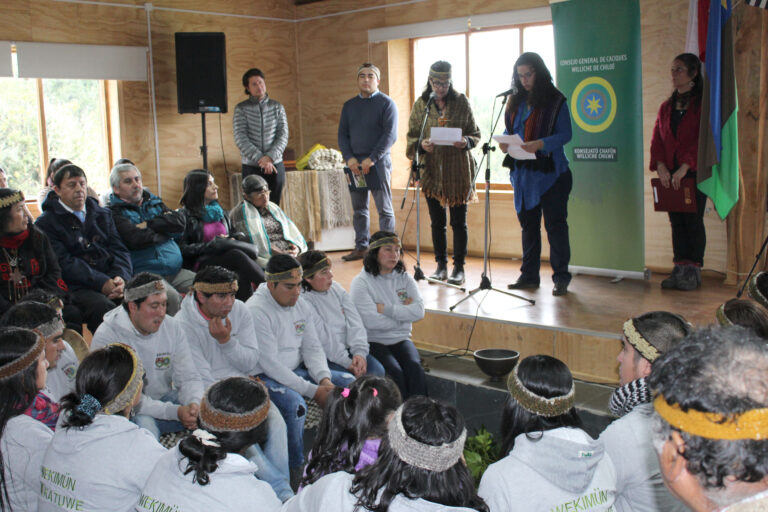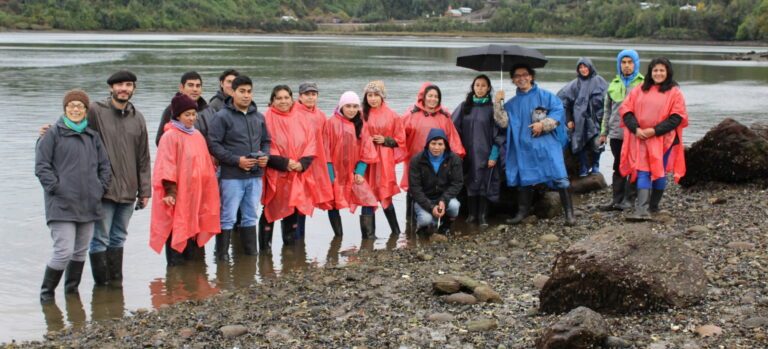
Today’s youth will face some of the world’s most pressing challenges, including the climate crisis, global inequality and sustainability. Preparing young people with the educational tools and skills to navigate complex issues is a key driver behind the research of Faculty of Education Professor Kate Tilleczek.
Through the Young Lives Research Lab she leads, Tilleczek is working with, by and for youth to design revolutionary, innovative and community-based educational models that empower younger populations to respond to emerging global challenges while supporting their own personal and community well-being.

“Education is not a one-size-fits-all approach,” explains Tilleczek, a Canada Research Chair in Youth, Education & Global Good. “As educators, our role must consider the different needs of different communities. What we need is not a set curriculum, but a model that can be adapted to what matters to youth, their communities and the planet.
“The kind of education I’m advocating for is one that opens up space for dialogue to talk about what one person can do, what one community can do. It is a shift towards understanding the place of education in youth socialization and development as it relates to planetary health.”
Tilleczek says that education will be key to achieving the United Nations’ 17 Sustainable Development Goals (UN SDGs), which York University has pledged to support. The UN SDGs represent the blueprint for peace and prosperity for people and the planet, now and into the future.
“Education underpins every single SDG,” she says. “Young people’s lives are at the intersection of many of the SDGs, with climate justice being one of them.”
New knowledge
The Wekimün Project is one of the initiatives supported by the Young Lives Research Lab. With funding from Global Affairs Canada, Tilleczek and her team, including her Senior Research Assistant and Manager, Deborah MacDonald, worked with Indigenous communities in Chiloé, Chile to build a school and develop a community-centered approach to sustainable education for Indigenous Williche youth. The project successfully created a curriculum based on traditional knowledge informed by Indigenous youth and community members.
“Indigenous Peoples have experienced ongoing colonization for hundreds of years. This project puts those communities at the centre to design, implement and execute their own educational model,” says Pablo Aránguiz, a PhD student at Polytechnic University in Valencia, Spain, who is a visiting research Fellow and associate researcher with the Young Lives Research Lab, and professor of sustainable development for the Wekimün Project. “(It is) a model that addresses the problems of the planet, including issues such as climate change, biodiversity and pollution.”

Wekimün, which translates to “new knowledge” in the Indigenous Williche language of Mapudungun, was integral to the creation of new relationships between people, but also with that of the Chiloé environment.
Tilleczek’s research at the Young Lives Research Lab has inspired a larger collaboration at York University through the Catalyzing Interdisciplinary Research Clusters (CIRC) grant, which was announced in December 2021. The project “The Partnership for Youth and Planetary Well-being,” brings together an interdisciplinary team that includes, among others: Tilleczek; Canada Research Chair in Indigenous Environmental Justice Deborah McGregor (Osgoode Hall School of Law, Faculty of Environmental and Urban Change); James Orbinski (Dahdaleh Institute for Global Health Research); and Postdoctoral Fellow in Planetary Health & Education James Stinson.
The research will employ ethnographic research to understand how young women, men and gender diverse people experience system inequalities and climate injustice, and how this impacts their well-being and ability to live sustainably. The project aims to support youth in sustaining life on the planet for healthier individuals and healthy communities.
Stinson is a cultural anthropologist working on a number of research projects centred around working with Indigenous youth in digital media production. Through the CIRC project, Indigenous youth will have the opportunity to head out into the field to record environment-themed content to connect with other youth, their Elders and the natural world.
“Research demonstrates that connecting to nature is really good for our mental and physical health, but consuming environment-related media – whether you’re seeing or hearing environmental images and sounds – can also have positive health benefits,” says Stinson.
“There are multiple pathways of learning that will take place for youth,” says Stinson. “The CIRC project will support youth with the skills to produce media content about the issues affecting their lives, their communities and the environment they live in. That information can be distilled to the broader community and with policymakers.”
Despite the challenges posed by climate change and environmental degradation, Tilleczek says that today’s youth are motivated and inspired.
“Young people may be overwhelmed by the challenges they face, but they are also hopeful,” says Tilleczek. “Being able to work alongside them, learning from their fresh ideas and perspectives makes me more hopeful for the future.”
Article originally published in the May 12, 2022 issue of Brainstorm, a special issue of Yfile.
